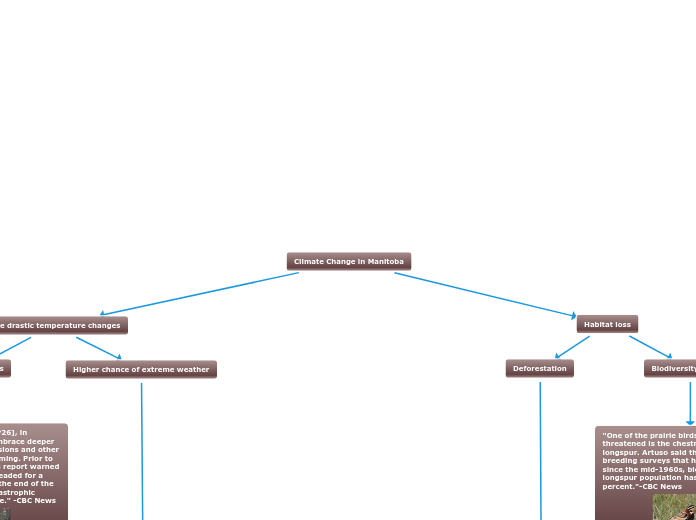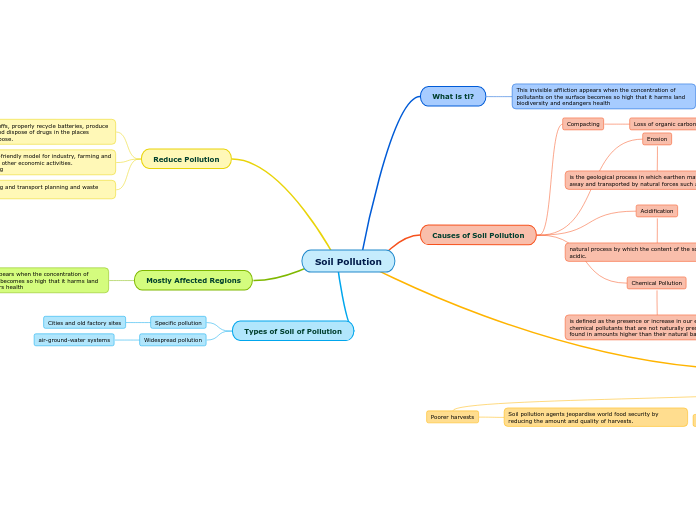Climate Change in Manitoba
Habitat loss
Biodiversity decline
"One of the prairie birds that is most threatened is the chestnut-collared longspur. Artuso said that according to breeding surveys that have been going on since the mid-1960s, biologists estimate the longspur population has dropped roughly 90 percent."-CBC News
Biodiversity loss can change the ecosystem services, and affect the lifestyle of diverse animals. The economy will also get affected, as it goes down. Migration will increase because people may leave the country, and sometimes cause political conflict.
Deforestation
"Forestry roads & landings carve out the equivalent of about 40,000 football fields a year in Ontario alone – an area seven times greater than the reported deforestation rate by forestry for all of Canada.
Because of wasteful practices, these logging scars typically remain essentially barren and dominated by grasses and low shrubs for 20-30 years after clearcutting, the investigation found."-CPAWS (Canadian Parks and Wilderness Society)
Deforesting trees can cause climate change of course, as well as desertification (turning land into a desert). Increased erosion will occur, as well as decreasing the amount of crops that the people will be able to grow. Lastly, we would lose trust for the Indigenous, which could bring us knowledge about our planet.
More drastic temperature changes
Higher chance of extreme weather
""In the midst of what was a really remarkable mild weather… Winnipeg had its mildest beginning to winter on record," Phillips said. "And then, in early February to Valentine’s Day, came this arctic blast, almost kind of polar vortex-like."
While Canada continued to worry about four waves of COVID-19, it also rode out four heatwaves from coast to coast. It was the fifth-warmest summer in 75 years on record, and the number of especially hot days over 30 C grew exponentially across the country." -Winnipeg Free Press
The consequences of extreme weather comes from climate change itself. If climate change gets more severe, then extreme weather and/or natural disasters will occur more frequently, and a lot more hazardous.
Warmer winters
"With the closing of the [COP26], in Glasgow, Scotland, [...] to embrace deeper cuts to greenhouse gas emissions and other measures to slow global warming. Prior to the summit, a United Nations report warned that the planet is currently headed for a temperature rise of 2.7 C by the end of the century that will "lead to catastrophic changes in the Earth's climate." -CBC News
Warmer winters can cause a heat wave, and earlier than it should occur. When the usual process of warmth is messed around, it can cause unusual vegetation at an unexpected time. This decreases the efficiency of the soil and increases the odds for other extreme danger.









